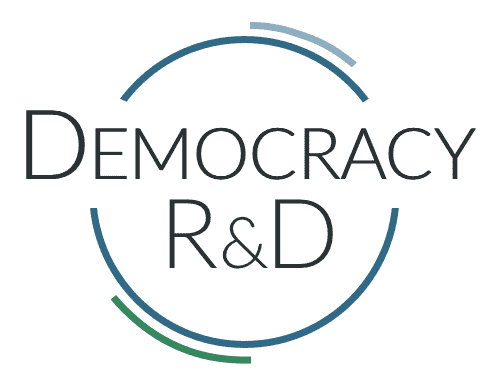About the network
We are an international network of organizations, associations, and individuals helping decision makers take hard decisions and build public trust.
Mission
We collaboratively develop, implement, and promote ways to improve democracy, from the local to the global level.
Vision
We envision democracies that incorporate everyday people in major public decisions which our present structures struggle to address – through processes that are representative, deliberative, free from manipulation, informed, and influential.
How we are funded
Principles
We form groups of everyday people using random selection in order to ensure a diversity of views. Selecting participants in this way also limits conflicts of influence and partisan pressures.
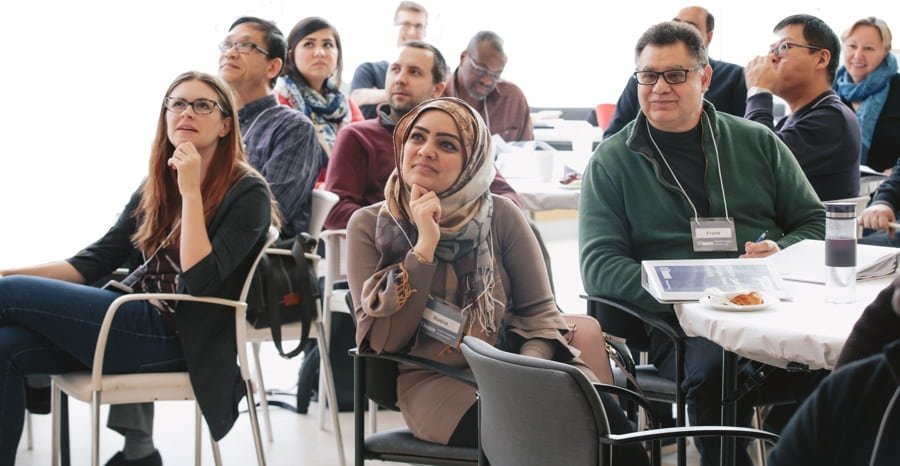
We give these groups time, wide-ranging information, and the opportunity to talk through differences. This facilitated process results in a weighing of trade-offs and sound policy suggestions.

We express no position on any policy outside of the need for democratic innovation, and we work hard to make our processes as fair and unbiased as possible.

We negotiate authority with decision makers in advance to increase the likelihood of action. Everyday people are unimpressed by tokenism and their efforts should have an impact on decision making.
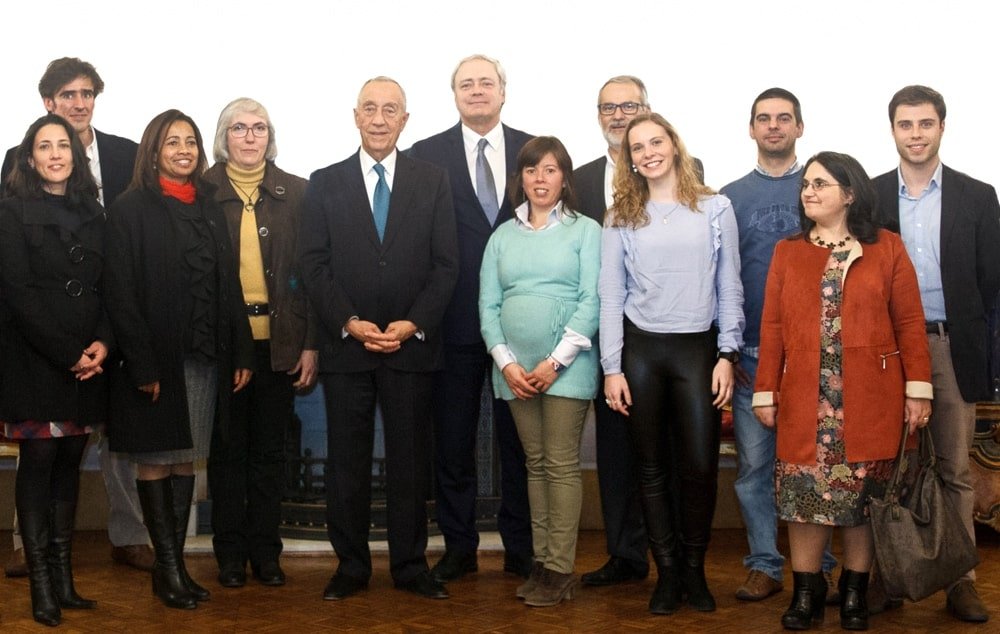
Members
Organizations
Individuals
- All
- Africa
- Asia
- Australia
- Europe
- Latin America
- North America
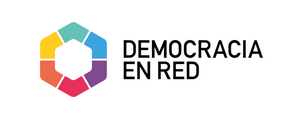
Argentina
Democracia en Red designs and implements innovations and digital tools to transparent, facilitate and strengthen democratic participation and to enhance cooperation between different social groups. Along this path, they created the DemocraciaOS technology (democraciaos.org): a digital platform with five standards to enrich participatory processes between government and citizens.

Australia
nDF offers advisory, design & oversight services to elected officials and governments seeking to innovate in how we reach trusted public decisions. nDF operated projects such as the 10 Year Financial Plan for the City of Melbourne ($4bn in budget, with a shortfall issue being central), to a large scale deliberation for the Premier of South Australia on a proposed nuclear waste storage facility.

Australia
Helps decision-makers resolve tough problems, no-win situations and stalemates by designing and delivering innovative initiatives involving everyday people from all walks of life. These people are brought together to become informed about the issues, talk with one another, explore differences and common ground, to make recommendations that are implementable and likely to increase public trust

Australia
The Centre for Deliberative Democracy and Global Governance is the world-leading academic research centre for the study of deliberative democracy. It specializes in assessing deliberative practices and conceptualizing ways of deepening democracy through deliberation. It is the home of the Journal of Deliberative Democracy and convenes the Deliberative Democracy Summer School.
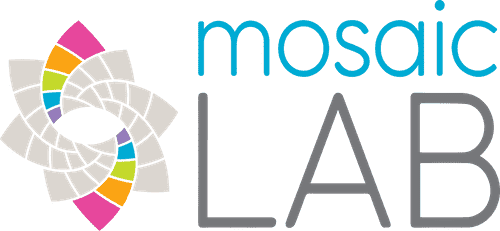
Australia
MosaicLab works with government agencies, community groups, not-for-profits, industry and commercial organizations seeking to invest in quality facilitation & engagement processes. They specialize in high-influence and deliberative engagement processes and offer an extensive learning hub where people can undertake training in engagement, facilitation & deliberation.

Austria
The Büro für Freiwilliges Engagement und Beteiligung (Office for Citizen Engagement and Participation) aims to support a cultural transformation process towards more cooperation within society by supporting people and organizations to find solutions for current sociopolitcal issues. Their activities are split into civic engagement, citizen participation, and regional & sustainable development.
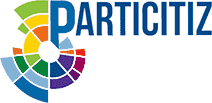
Belgium
Since its creation in 2015, Particitiz has conceptualized and implemented deliberative processes in various political institutions, at the municipal, regional, national and European levels. Their approach is based on sortition, collective intelligence and long term processes.

Belgium
Works with policy makers that are motivated to innovate democratic practices to assist them in developing solutions based on deliberation and sortition. Builds capacity by organising workshops and summer schools on deliberation and sortition. And informs public opinion about these new forms of democracy through diverse communication channels and occasional campaigns.
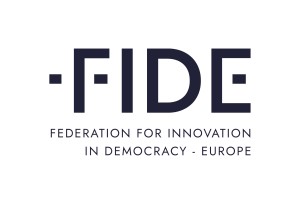
Belgium
FIDE is an International non-profit organisation that reunites leading democratic innovators advising governments and non-governmental actors on design-principles and best practices related to citizens’ participation, deliberative democracy and civic lottery. Its umbrella of experts has designed and advice on relevant deliberative processes such as the ‘Ostbelgien Model’.
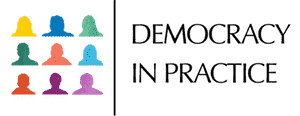
Bolivia
Works with schools to reinvent civic education so that it is more inclusive and engaging. They do this primarily by replacing traditional student elections with voluntary lotteries, so that every student has an equal opportunity to become a student representative. And they provide student representatives with tools and training to help them develop into engaged citizens and effective leaders.

Brazil
Works to enable citizen participation for more informed and consequential decisions, oriented for common good. The team's plural background on survey research, public opinion, education, social and political sciences support planning and conducting of mini-publics adapted to diverse conditions as well as integrated with decision making and legislative processes.

Canada
Since 2007, MASS has led some of Canada’s most ambitious efforts to engage citizens in tackling tough policy choices while pioneering Civic Lotteries and Citizens’ Reference Panels on behalf of forward-thinking governments. Approximately 1 in 67 Canadian households have received invitations to serve in a deliberative process such as the ongoing Toronto Planning Review Panel.
Canada
The Centre facilitates transformative conversations to advance solutions for society’s most pressing challenges. A “think and do” tank, it has engaged hundreds-of-thousands of citizens and stakeholders through processes such as the Citizen Dialogues on Canada’s Energy Future and Canada’s World, and promotes democratic innovation in areas such as deliberation, equity and climate engagement.
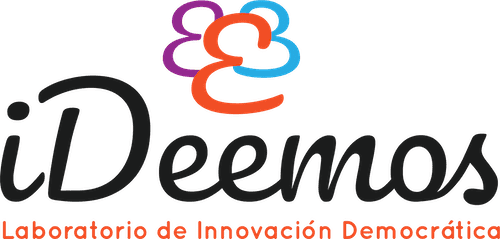
Colombia
iDeemos works in the design of democratic innovations such as citizens' assemblies and crowdsourcing tools; the generation of digital platforms for companies and state entities to interact with citizens. They also provide legal advice on the fulfillment of democratic standards and processes such as popular consultation and public hearings and work to improve regulations so that the new norms comply with democratic criteria.
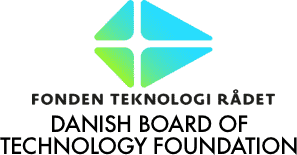
Denmark
Works to ensure that society’s development is shaped by informed and forward-looking cooperation between citizens, experts, stakeholders, and decision-makers. They have designed and implemented a range of different engagement and co-creation methods at the local, national, European and global level, including the Consensus Conference and World Wide Views.

Denmark
Komponent assist the municipalities with development and practice-oriented competence development, locally anchored courses, analyses and advise within and across all the municipal welfare areas directed towards practitioners, managers and politicians. Komponent also design and facilitate citizen assemblies and other forms of deliberative democracy.

Denmark
Works to strengthen, redesign and revitalize participation formats and processes in order to increase citizens’ participation, the quality and relevance of policy-making and democratic leadership. Consult in democracy as governance form and advise policy makers in deliberative methods, like Citizens Assembly, where citizens and users are invited on board to qualify complex issues and decisions.
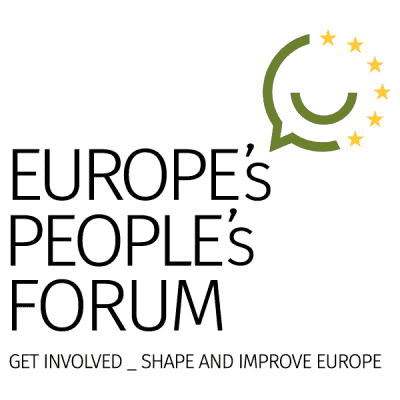
Denmark- International
With expert organisations in all European countries EPF analyses needs, assists policymakers and civil society to design and implement representative participatory processes at local, national or International level, making use of online platforms, media and social media, deliberative dialogues and assemblies between elections to strenghten democratic participation and citizens influence.

Estonia
The Center is a foundation based in Estonia, working on the ecosystem of healthy democracies in Northern Europe and the Baltics. The focus is on democratic institutions: separation of powers, rule of law, democratic accountability and ideological pluralism.
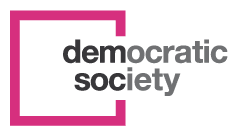
Europe
Demsoc works to create opportunities for people to become involved in the decisions that affect their lives and for them to have the skills to do this effectively. It supports governments, parliaments and any organization that wants to involve citizens in decision making to be transparent, open and welcoming of participation. Demsoc actively support spaces, places and processes to make this happen.

Europe
The ECI Campaign's key goal is to combine methods of deliberative consultations in the follow-up process of European Citizens' Initiatives. Successful ECIs should be followed by citizens' consultations based on randomly‐selected and demographically‐balanced voters being brought together from across the EU to fairly evaluate an ECI proposal. The organization is developing a pilot project on this subject.
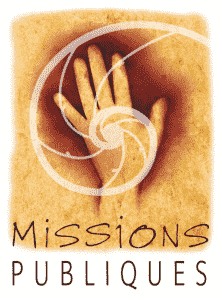
France & Germany
A mission driven consultancy aiming at improving the decision making process by designing and implementing new forms of dialogues between citizens, governments and experts. They work at all levels from local to global and focus on having the highest qualitative processes and the strongest impact for over 20 years.
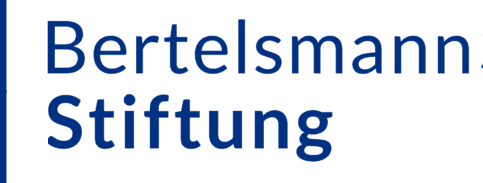
Germany
The Bertelsmann Stiftung (Foundation) is a leading German think tank which develops solutions to contemporary societal challenges. Through its democracy program the Foundation seeks to foster citizens’ participation. It explores how the EU can be more participatory. It analyses existing participation forms, explores how new ones can be established and pilots participatory innovations.
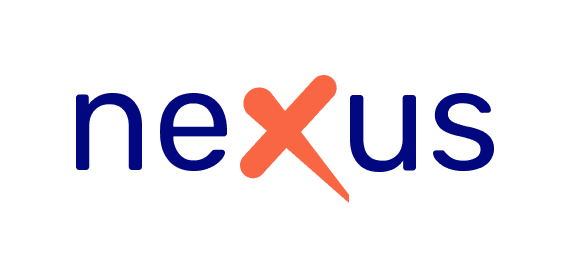
Germany
Combines practice and research with concepts, facilitation and evaluations. Nexus believes that active citizenship and the participation of different actors change the development of society. Their topics are mobility, digitization, regional development, demographic change and sustainability.

Germany
Composed of 14 regional associations, Mehr Demokratie is the driving force for citizens' initiated referenda in Germany. It was founded in 1988 and stands up for a better electoral law and an intelligently interwoven parliamentarism, direct democracy and civic participation. It advocates that every vote counts equally and everybody has the right to participate in the democratic process.

Germany
Es geht LOS mainly focuses on electoral district assemblies in order to strengthen representative democracy. Additionally es geht LOS offers support to enhance democratization and participation in political associations, parties and alike.

Germany
ifok organizes participation and cooperation since more than 25 years. Its "Deliberation, Open Government & Democracy" unit has become one of Europe's leading designer and implementer of randomly selected Citizen Assemblies at the regional, national and EU level. ifok is involved in all stages of deliberative processes - from the design and recruitment (sortition) stages to the follow-up process.

Georgia
The Tbilisi School for Social Research focuses on evidence-based policy solutions aimed at consolidating democratic governance and reintegrating the occupied regions of Georgia based on liberal democratic order. The team innovates in sortition toolkits and creative solutions for student and local self-governance.

Hungary
DemNet is an independent Hungarian NGO which places emphasis on the constructive dialogue between sectors and the principle of localism. It prepares analyses and public policy proposals, cooperates with domestic and EU decision-makers and stimulates the exchange of ideas between NGOs and opinion leaders. In recent years DemNet has become the pioneer of deliberative participatory tools in Hungary.

Hungary
Raises awareness and knowledge of participatory democracy methodologies, especially citizens' assemblies among political and other actors, as well as the general public in Hungary through education, advocacy and campaigning. Also facilitates and promotes the organization of CAs by local municipalities and / or civil society organizations.

International
DemocracyNext is a non-profit and non-partisan research and action institute. Founded by a former OECD analyst and working to shift political and legislative power to everyday people through empowered Citizens’ Assemblies. They design and build new institutions for the next democratic paradigm of citizen participation, representation by lottery, and deliberation.

International
Helps generate creative public solutions to pressing challenges, most notably related to the crises of governance, climate change, social inequality, and biodiversity. Opens public administration to outside expertise and empowers a diversity of actors –not just citizens– to contribute constructively to public administration. Helps reinvent democracy through innovative governance processes.

International
International non-profit working towards political systems. Integrating “people-power” into our:
-Leaders - growing a movement of politicians with the tools and desire to redistribute power
-Citizens' assemblies - generating fair policies, activating citizens, and overcoming polarization at local, national and global scales
-Public services - by incorporating the perspectives of people using them.

Ireland
Brings together in one site the Irish experience of using citizens’ assemblies to facilitate widespread constitutional and political reform. Provides information on the 3 Irish processes that have occurred to date: We the Citizens (2011), The Convention on the Constitution (2012-14), and the Irish Citizens' Assembly (2016-18).

Israel
An innovative approach for how masses of people can communicate. Rather than perceiving the discussion as mass amounts of individuals, cluster them by ideas. By employing advanced algorithmic methods, it enables more efficient and effective facilitation of dialogues, ensuring that consensus is reached and key insights are seamlessly integrated into the decision-making process.
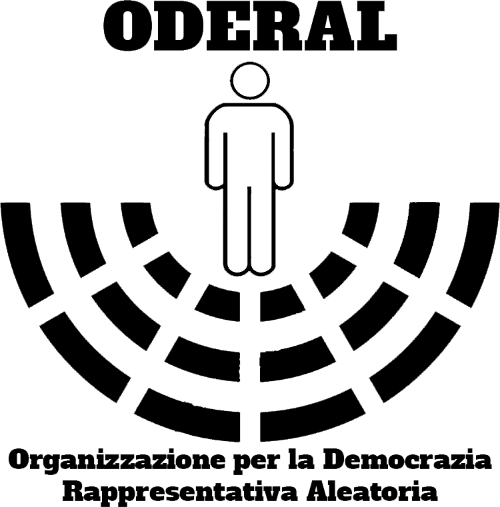
Italy
With the support of its Scientific Committee, ODERAL studies and promotes the use of sortition in democracy. It is one of the founders of an Italian association called "Politici Per Caso", which brings together many organizations and committed in the realization of Citizens' Assemblies at national level with a law and all around the country.

Italy
NGO aiming at improving Italian democracy mostly with deliberative participation of random selected groups of citizens, so promoting and organizing Citizens' Assembly all around the country. It collaborates with public administrations, institutions and politics at any level, as well as other NGOs, movements and stakeholders.

Japan
Japan Initiative starts by thinking of society as “my matter”. It works with the government, local governments, and the legislature to involve ordinary people in a variety of endeavors to make them think about society as their own. Example projects include Program Review and Citizen Council.

Japan
A gathering of citizens, practitioners, and scholars for deliberative mini-publics. Based on the idea that the participation of randomly selected citizens can make a difference in the governmental policymaking process, the JMPRF was established to integrate achievements in theoretical studies and the practice of deliberative mini-publics and disseminate them in Japanese society.
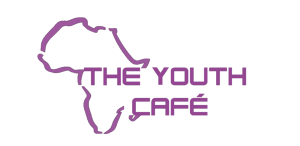
Kenya
Works with marginalised sections of young people such as youth living with disability, youth living in informal settlements such as slums, young women and girls, refugee youth, and youth living with HIV/AIDS. Cross-cutting themes include gender equality and parity, media, research, innovation, policy and advocacy.
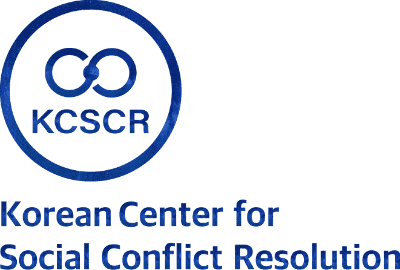
Korea
Discovers successful cases of conflict resolution and implements research to resolve social issues with methods of Deliberative Democracy. KCSCR holds no position on any public or private issues, and it utilizes collective problem-solving practices among stakeholders and mini-public deliberation by modified deliberative polls, public discussions, and policy dialogue methods.
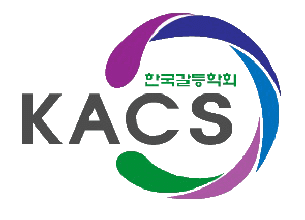
Korea
Under the motto “The Orientation to Co-existence and Co-operation beyond Conflicts”,
KACS holds research presentations and academic lectures; develops directions and measures for public policies in conflict areas; and provides consultations on policy making and enforcement related to conflict prevention and resolutions.

Mauritius, Rwanda & Senegal
i4Policy is a charitable foundation that invests in public policy co-creation: supporting national and international policy-making processes, developing new tools and methodologies, and building collaborative and inclusive coalitions and movements. "The future is co-created."
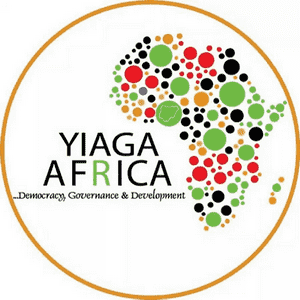
Nigeria
Yiaga Africa envisons a democratic and developed Africa where citizens are engaged. The organization works with citizens and local council officials to improve local governance through public deliberation.

Netherlands
Works on the local, regional and national level. 'Whole system in the room': inhabitants, civil servants, politicians and employers are all invited to join in for dialogue. Up to 1.000 participants, preferably chosen by lot, decide what is important and work from there to propose concrete solutions. After 3 months work they decide which proposal is sent to council or parliament.
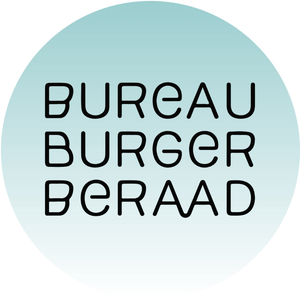
Netherlands
Is a young non-profit organisation, that in a short time has managed to put citizens' assemblies on the map in The Netherlands. It strives for a future-proof and inclusive democracy and stimulates citizens' assemblies with impact. It does so through high level advocacy, public campaigns, knowledge development, quality monitoring, advising decision makers, and training deliberative professionals.
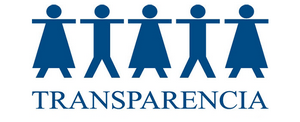
Peru
Transparency works in the observation of elections, in advocating for the improvement of democratic quality, in citizen surveillance, and promotes citizen mobilization.
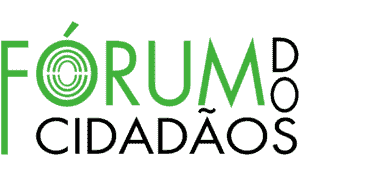
Portugal
Regularly organizes citizens assemblies on current topics and actively disseminates their results among politicians, the media and the general public. The goal is to inform and shape public debate in a constructive way, making the pondered, informed voice of the public heard.

South Africa
The Citizens’ Assembly Working Group is a research initiative of the Centre for Research on Democracy (CREDO). Bringing together African and international scholars, the group aims to investigate the relevance of citizens’ assemblies for the future of South African democracy and to design and convene the country’s first pilot assembly. It is the first African-led research initiative of its kind.

Spain
Deliberativa's co-founders Yago Bermejo and Arantxa Mendiharat have been involved in the G1000 process in Madrid, in the creation of the first deliberative permanent assembly, the Observatory of Madrid (from ParticipaLab / Madrid City Council), and in designing citizens’ juries in municipalities. Mendiharat is co-author with E. Ganuza of “La democracia es posible. Sorteo cívico y deliberación” (Consonni).

Switzerland
Takes every opportunity to inspire democracy stakeholders with innovative concepts involving deliberation and sortition. Their goal is to launch a constitutional initiative that aims at filling one chamber of the swiss parliament with ordinary citizen choosen by lot. They support related initiatives toward a future democracy where powers are shared among all citizen, without elitism nor populism.

United Kingdom
Citizens' Juries put the public into public policy-making. A cross-section of the public are recruited (e.g. 18 people), provided with independently-validated information from expert witnesses, and deliberate together to find answers to the policy questions they have been posed.

United Kingdom
Founded in 2003 to “to create a new focus for thinking and action on the links between new forms of public participation and existing democratic institutions”. They have been promoting and practising participatory and deliberative democracy ever since. Involve work toward building new democratic innovations, institutions and norms that put people at the heart of decision-making.
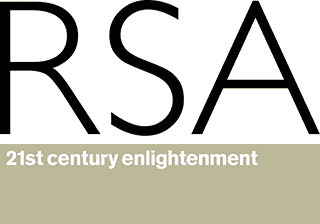
United Kingdom
Supported by 29,000 Fellows, The RSA shares powerful ideas, carries out cutting-edge research and builds networks, helping to create fulfilling lives and flourishing societies. In recent years, large parts of this work has focused on deliberative processes and the RSA is currently developing a campaign for deliberative democracy to promote political reform in the UK.
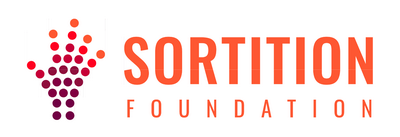
United Kingdom
A not-for-profit organization whose mission is to promote and institute sortition in empowered assemblies. They envision a world free from partisan politicking, where a representative random sample of everyday people make decisions in an informed, deliberative and fair environment; they want to fundamentally transform the way democracy is done.
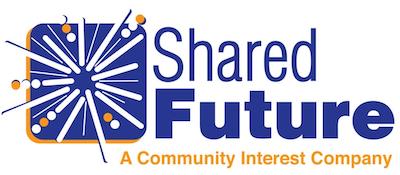
United Kingdom
Established for over 10 years, Shared Future are leading experts in the areas of Participatory Budgeting and Citizens Inquires. Their mission is to move those they work with towards greater individual and collective authority and autonomy, by supporting their ability to act wisely, confidently and in community with others with exciting and innovative projects in a wide variety of localities.
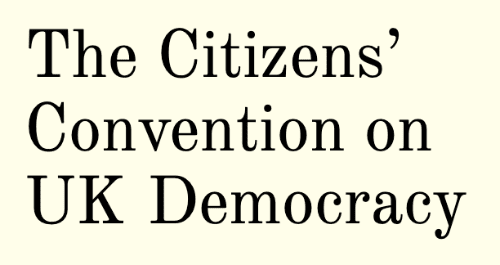
United Kingdom
The Convention would take the form of an ambitious and inclusive deliberation on democratic reform in the UK, aimed at developing our democracy to be more open, accountable, receptive, participatory and transparent. The process would involve randomly selected citizens, convened to learn, discuss and make decisions on how our democracy can be improved - which would then go before Parliament.
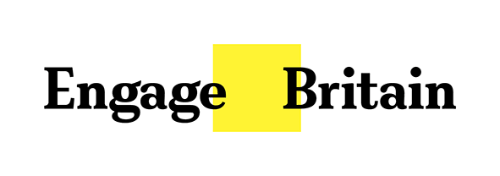
United Kingdom
Britain faces challenges, but how we approach these challenges needs to change. Engage Britain has been established to put people at the heart of finding answers. Great ideas come from combining our different views, knowledge and experiences, so we’ll bring people together to talk and listen. Where voices have been excluded or unheard, we’ll make sure we’re all equally involved in finding answers.
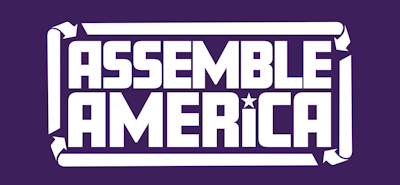
United States
Seeks to upgrade American politics by bringing Citizens' Assemblies to the center of the national discourse and turn them into a new feature of government. To that end, fosters and empowers a non-partisan, diverse, participatory movement through initiatives in networking, advocacy, and awareness.

United States
Work with electeds and civil servants to accelerate the use of citizens' assemblies in their localities. They do this primarily by providing matching grants and technical support so a locality can host a sequence of 3 assemblies on pressing topics, and through the process co-design a regular, recurring, publicly funded integration of assemblies in local government.
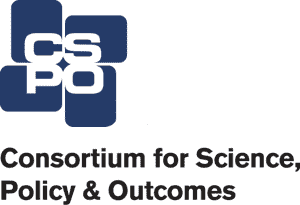
United States
A leader in convening citizen-focused technology forums throughout the US, the CSPO is an intellectual network aimed at enhancing the contribution of science & technology to society’s pursuit of equality, freedom, and quality of life. The CSPO creates knowledge and methods, cultivates discourse and fosters policies to help decision makers grapple with the immense power of emerging science & technology.

United States
Works to elevate the voice of citizens in their democracy and improve public discourse for the benefit of all voters. Our flagship program, the Citizens' Initiative Review (CIR), involves the public in evaluating ballot measures and referenda so voters have easy access to clear, useful, and trustworthy information at election time.

United States
The Center for New Democratic Processes is a nonpartisan, nonprofit civic engagement organization. Their primary tool for deliberation and education is the Citizens Jury, which was invented by their founder Ned Crosby in 1971. They partner with citizens, communities, and institutions to design and implement informed, innovative, and democratic solutions to today’s toughest challenges.

United States
Provides open-source program documentation and guidance for running and designing reforms based upon the pioneering work of the PJG’s Director, Tyrone Reitman, designing and institutionalizing the Citizens’ Initiative Review (CIR) from 2006-2016. As the leading example of how to incorporate Citizens Juries into government in the US, the CIR is the foundation for the PJG’s work.

United States
Works to bring a citizens' assembly to Los Angeles on a topic of broad public concern by 2026. They do this by organizing and hosting public events and briefings on the benefits of citizens' assemblies and by meeting with public officials, lawmakers, and legislative staff.

United States
of by for is focused on getting past parties and politicians and putting everyday people front and center. They are currently working to convene a national Citizens' Congress in the US, and share this historic gathering through powerful visual storytelling.

United States
Developed Deliberative Polling® as an attempt to use public opinion research in a new and constructive way. The resulting changes in opinion represent the conclusions the public would reach, if people had opportunity to become more informed and more engaged by the issues.
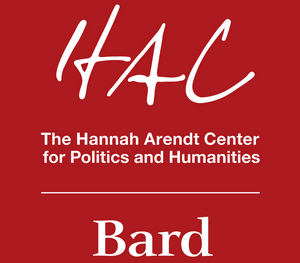
United States
The Center oversees a variety of programs that bring Arendt’s fearless style of thinking to a broad audience. Our annual two-day fall conference brings together authors, scholars, activists and students to discuss contemporary issues. Above all, the Center provides an intellectual space for passionate, uncensored, nonpartisan thinking that reframes and deepens the fundamental questions facing our nation and our world.
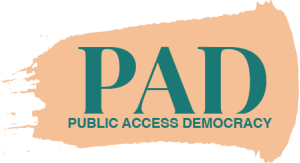
United States
The influence of moneyed interests has so distorted electoral democracy's functioning that it has become almost impossible to implement rational policies that benefit a majority of people. Public Access Democracy seeks to invest political power in deliberative citizen groups chosen by lot. It's not a plan to get money out of politics. It's a plan to get politics out of democracy.

United States
Democracy Creative is a design firm for democracy and community meeting hall. They empower everyday people to re-imagine government through citizens’ assemblies, digital participatory democracy tools, inspired media and events.
| Name | Focus | Country | |||
|---|---|---|---|---|---|
| Brian Sullivan | Organizer | United States | 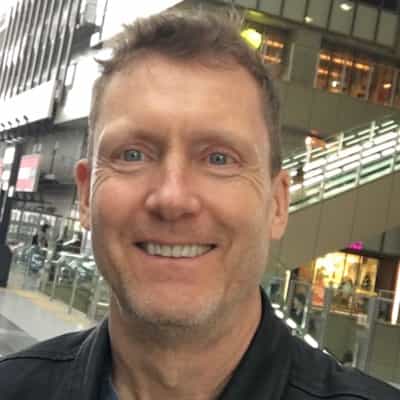 | Brian's mission is to develop and promote a universal capacity to think together in any group setting - a new form of communication that must be ubiquitous and D-I-Y. Self-governance, as an antidote to partisan politics, depends on developing this capacity in every context. | Web page |
| Doreen Grove | Public Servant | Scotland | 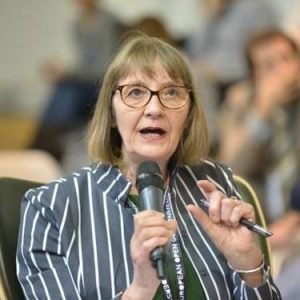 | Doreen leads Scottish Government’s involvement in the Open Government Partnership at both a National and International level. In Scotland, Open Government supports the reform of public services, the renewal of democracy, promotes openness and transparency | |
| Aviv Ovadya | Researcher, Advocate, Practitioner | United States | 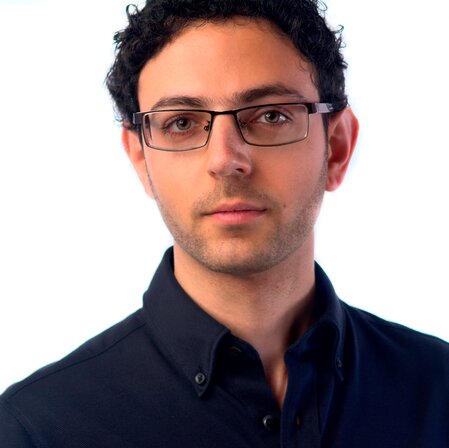 | Aviv Ovadya works at the intersection of technology and democracy, supporting the use of deliberation for AI and platform governance. He is affiliated with the Berkman Klein Center at Harvard University and is a Visiting Scholar at Cambridge University (LFCI). | LinkedIn Project Page Newsletter Professional Page |
| Robin Teater | Advocate | United States | 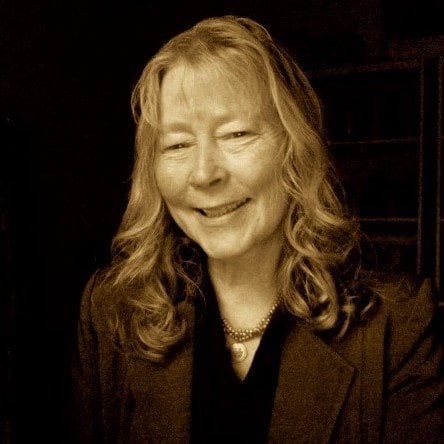 | Robin was formerly with Healthy Democracy (Citizens' Initiative Review; Citizens Juries; Citizen Assemblies) as a practitioner. Currently she is an "unofficial" (non-affiliated) advocate for sortition-based deliberative democracy in the US. | |
| Teele Pehk | Practitioner | Estonia | 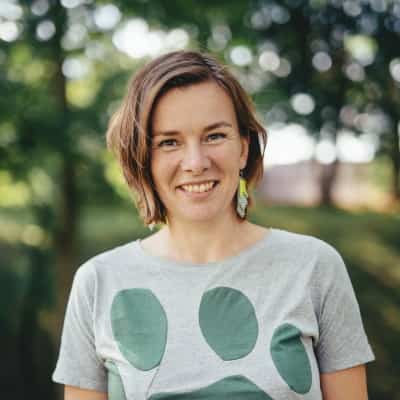 | Teele is a democracy artist who organises climate assemblies in Estonia. She promotes governance innovation for the sake of de-growth. | Linkedin Professional Page |
| Avinash Madhale | Researcher | India | 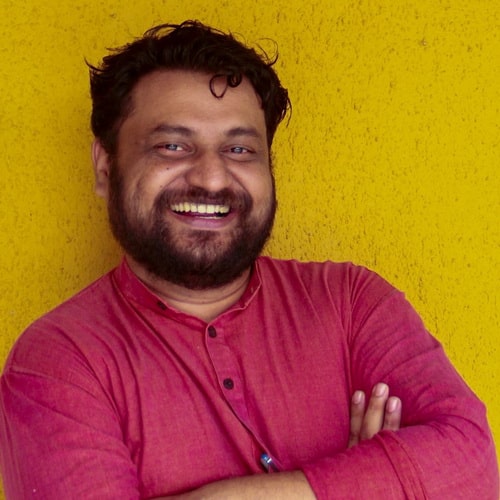 | Avinash has Ph D in Politics of Participation in Urban Governance. He has been facilitating citizen's participation in municipal budgeting. Avinash works with grassroots organizations working Environmental, Health, Education, Transportation, informal sector in Urban areas | |
| Patricia Benn | Advocate | United States | 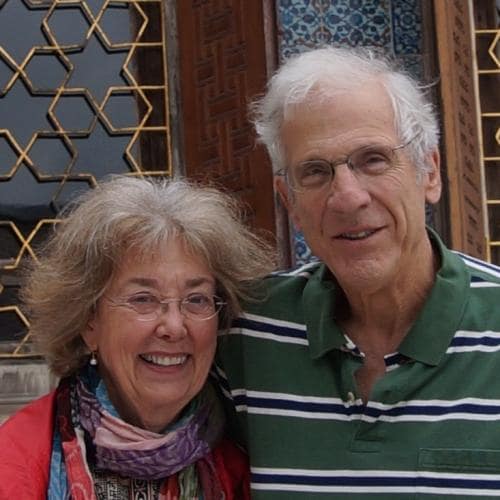 | Pat Benn was one of the 4 founders of the Citizens Initiative Review in Oregon and has worked on many aspects of the Citizens Jury and democracy in the workplace and participatory stakeholder management in schools and school districts. | |
| John Gastil | Researcher | United States | 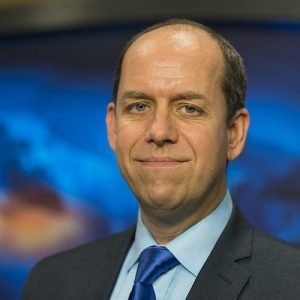 | John Gastil’s is a professor of Communication Arts & Sciences at Penn State University. His research focuses on the theory and practice of deliberative democracy, especially how small groups of people make decisions on public issues. | Faculty Page |
| Tim Hughes | Practitioner | United Kingdom | 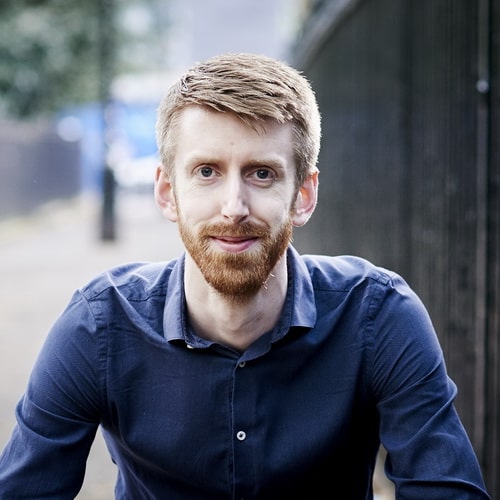 | Tim is a specialist in public participation, with over a decade of practice, research & capacity building experience. As director of Involve (2017-2021), he advised governments across the UK; facilitated 20+ citizens' assemblies, juries & panels; & developed guidance & standards. | |
| Ceri Davies | Researcher | United Kingdom | 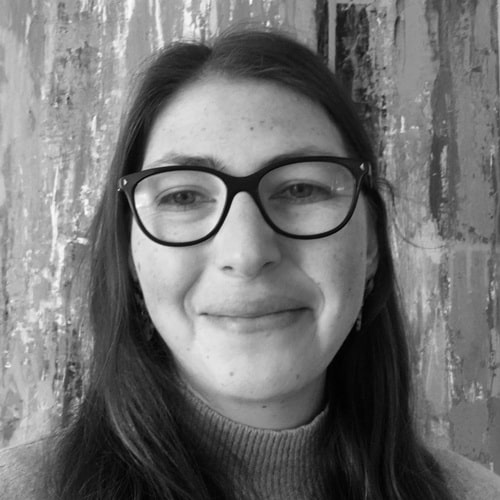 | Ceri davis works at the intersection of evidence and practice on citizen engagement with policy making in the context of democratic innovation with a particular interest in the politics of knowledge. She is an Assoc. Editor of Research for All and a Fellow of the RSA. | Research |
| Ned Crosby | Advocate | United States |  | Ned Crosby invented the Citizens Jury process in 1971 and conducted the first CJ in the US in 1974. He is the founder and former Executive Director of the Jefferson Center, a co-developer of the Citizen Initiative Review, a co-founder of Healthy Democracy, and the designer of several models of alternative democratic systems. Crosby is a major supporter of the Democracy R&D network. | |
| Miriam Levin | Public Servant | UK | 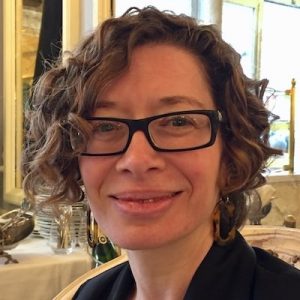 | Miriam leads national community empowerment programs, including Innovation in Democracy using citizens' assemblies to open up local government decision-making. As a consultant she ran community engagement work around regeneration, and was Head of Outreach at English Heritage. | |
| Center for Organizational, Strategic and Democratic Priorities (COSDP) | Researcher | Georgia | 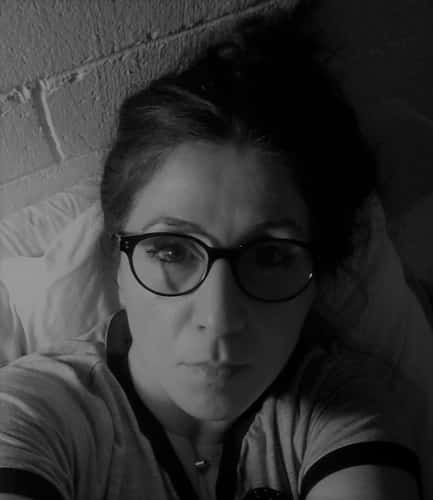 | A Ph.D. candidate in Mass Communication and a director and a founding member of the Center for Organizational, Strategic, and Democratic Priorities (COSDP). Main research interests include mass communication, deliberative democracy, deliberative mini-publics. | |
| Ed Cox | Public Servant, Advocate and Activist | United Kingdom | 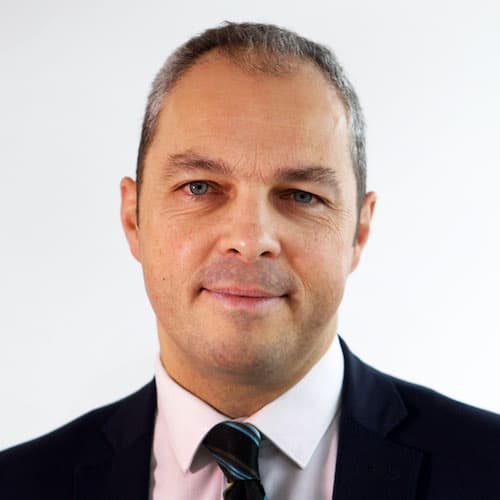 | Ed is the Director for Inclusive Growth at West Midlands Combined Authority (the mayoral body for the Birmingham city region). Ed is also the chair of Involve, one of the UK's leading public participation charities. | Involve Project Page |
| Sanskriti Menon | Program Officer in a Foundation | India | 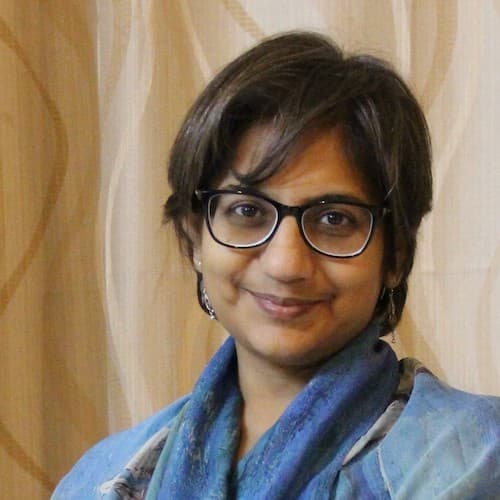 | Sanskriti is Senior Programme Director, at the Centre for Environment Education. She is currently a doctoral candidate with Curtin University, Perth, exploring traditional public participation and experiments with Deliberative Democracy in Pune, India. | Our Pune, Our Budget |
| Paul Gölz | Researcher | United States | 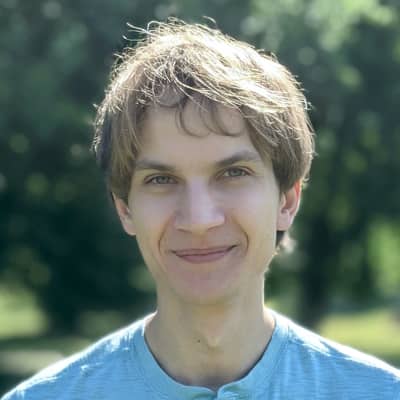 | Paul is a postdoctoral researcher at Harvard. He studies democratic innovations through mathematics and has extensively worked on algorithms for the lottery selection of citizens’ assemblies. He co-developed Panelot, a not-for-profit software system for assembly selection. | Research website Panelot.Org |
| Oliver Escobar | Researcher and practitioner | Scotland / UK | 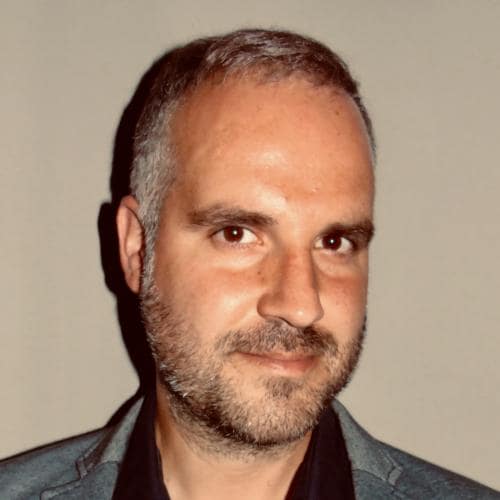 | Oliver Escobar is Senior Lecturer in Public Policy at the University of Edinburgh, Academic Lead on Democratic Innovation at the Edinburgh Futures Institute, and former co-director of What Works Scotland. He co-edited the new Handbook of Democratic Innovation and Governance. | Faculty Page |
| Rachel Krust | Advocate | Australia / United States | 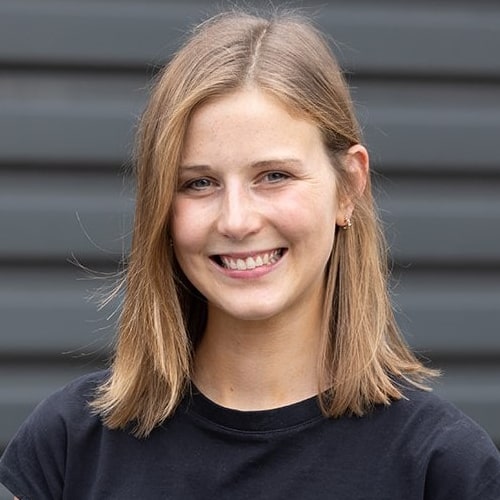 | Rachel recently graduated with a Master in Public Policy from Harvard Kennedy School, where she wrote her applied thesis on deliberative democracy working with newDemocracy Foundation, worked as a democracy fellow and founded a group dedicated to democratic innovation. | LinkedIn Project Page |
| Claudia Chwalisz | Public Servant | France | 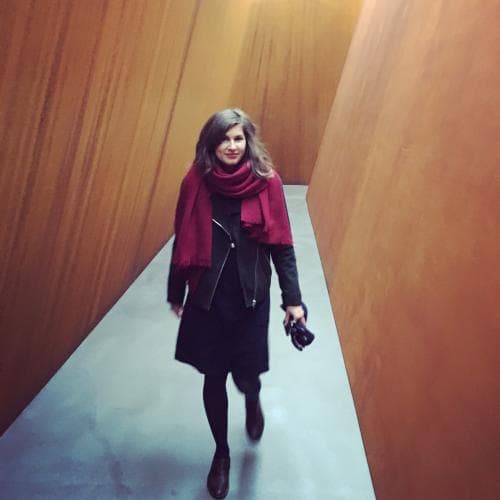 | Claudia leads the OECD's work on innovative citizen participation and co-edits the OECD publication Participo. She is the co-author of Catching the Deliberative Wave (2020) and the author of The People's Verdict (2017) and The Populist Signal (2015). | About Participo Personal Page |
| Marianna Sampaio | Researcher | Brazil | 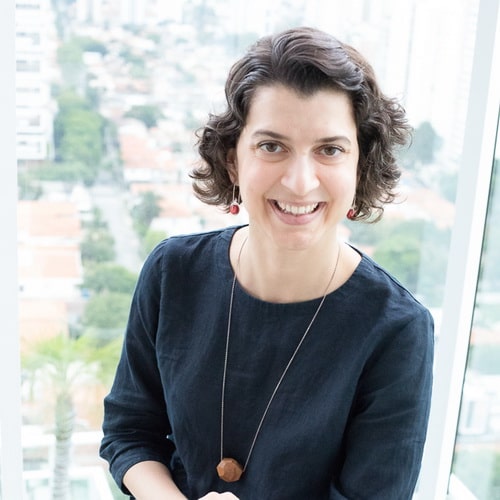 | Marianna Sampaio is Public Executive at São Paulo City. Ph.D. candidate in Public Administration and Government. Marianna is currently working on her dissertation about mini-publics because she believes they can deepen and improve Brazilian democracy and bring ordinary people into politics. | |
| Rosana Rodrigues | Public Servant | Brasil | 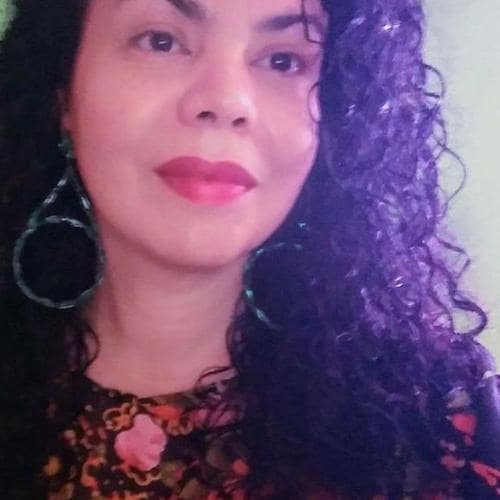 | Rosana is a sociologist with a master in Labour Relations, Social Inequalities and Trade Unionism (Coimbra University - Portugal). She is the manager of the Fortaleza Observatory, where she identifies and proposes innovative dialogues between society and government. | Observatiorio de Fortaleza |
| Ieva Česnulaitytė | Public Servant | Lithuania |  | Ieva works at the OECD on innovative citizen participation and writes for the OECD publication Participo. She is the co-author of Catching the Deliberative Wave (2020). | Twitter Project Page Participo |
| Félix Romo-Gasson | Public Servant | México | 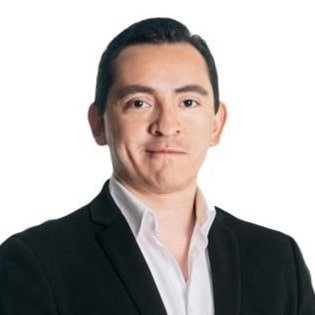 | Félix is the director of SESEA Chihuahua and member of the Academic Network of Open Government (Red RAGA).He strongly believes in transparency and accountability. Along with his team, he promotes citizen engagement across government initiatives as a tool to outweigh systemic corruption. | Anti-Corruption Secretariat Publications Page |
| Rosa Zubizarreta-Adai | Practitioner-Researcher | United States | 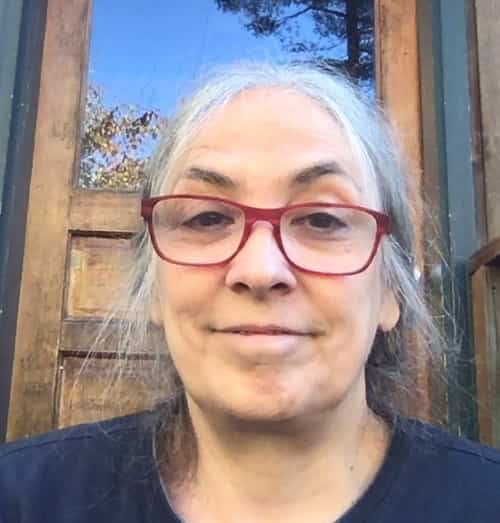 | Rosa Zubizarreta-Ada is an organization development consultant, author, researcher, and teacher of advanced facilitation practices. She has been learning about the Citizens’ Councils in Austria since they began in 2006, and as of 2023 is completing a dissertation on this topic. | Research website |
| Claire Mellier-Wilson | Practitioner | United Kingdom | 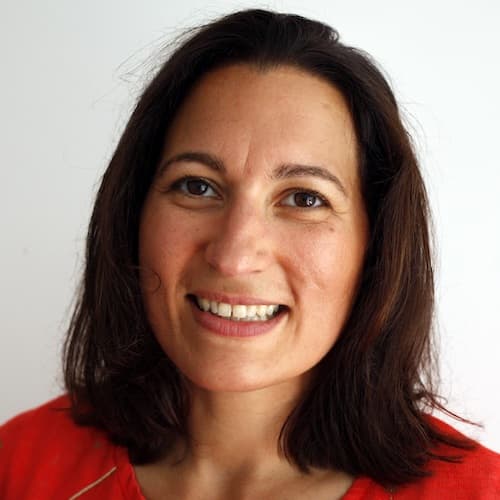 | Claire is a freelance facilitator and researcher with a lifelong interest in citizens' participation and sustainability. She came to the UK in 2004 after working in France for an environmental NGO. That's when she realised she was a facilitator at heart rather than a campaigner. | Personal Page |
| Niamh Webster | Public Servant | Scotland | 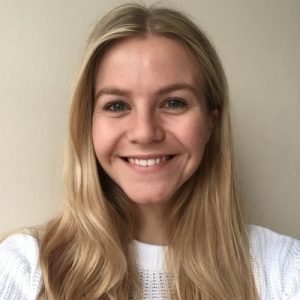 | Niamh leads on public engagement using digital technology as Digital Engagement manager. Her work is closely linked to the governments the role in the international Open Government Partnership. She is working to embed deliberative democracy and explore the potential of digital. | Twitter |
| Tamara Ehs | Researcher, Practitioner | Austria | 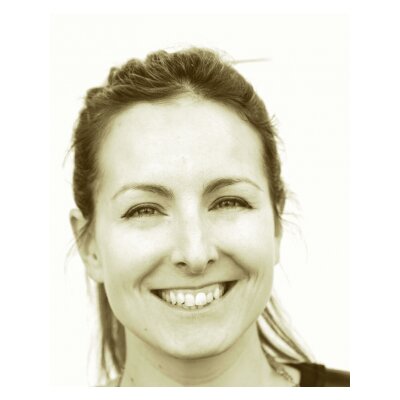 | Tamara Ehs is a political scientist and consultant for democratic innovation. She is the co-creator of the 'European Capital of Democracy', a scientific advisor to the State Councillor of the Baden-Württemberg and a member of the Commission for Dialogue Processes at the Austrian Federal Ministry for Climate Protection and Innovation. Recently, she evaluated the Austrian Climate Assembly on behalf of the European Climate Foundation, and is now taking part in the COST-Action ‘Intergovernmental Coordination from Local to European Governance’. | Twitter Professional Page |
| Lauren Howard | Public Servant | Canada | 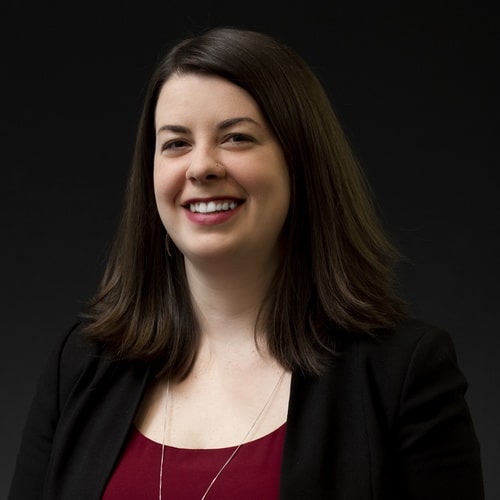 | Lauren has worked in stakeholder engagement across private, public and not-for-profit sectors. She is a strong believer in creating spaces to foster dialogue from different perspectives, and is a champion for inclusive and participatory practices. | |
| Obhi Chatterjee | Public Servant | European Union | 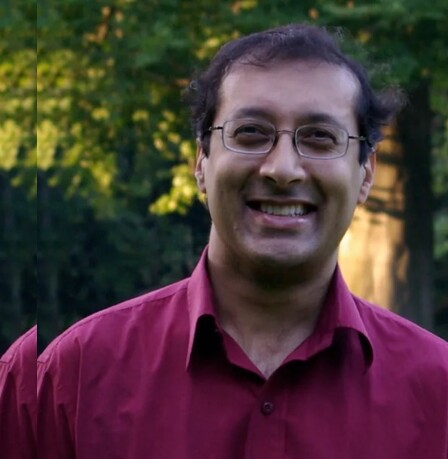 | Obhi is responsible for Learning Technologies at the European Commission. He has developed a learning solution to co-create policies with citizens, as well as facilitating a co-design workshop for citizen deliberation related to the five Horizon research Missions. | EU Academy European Commission |
| Mauricio Mejia | Public Servant | Mexico | 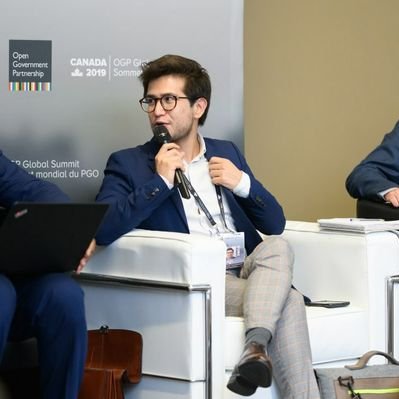 | Mauricio works at the OECD, on the transition to an open state in LAC and the future of democracy. He strongly believes in the need to design new democratic infrastructures and digital public spaces to better include citizens and redistribute power. Mauricio teaches at SciencesPo Paris. | LinkedIn |
| Gaëtane Ricard-Nihoul | Public Servant | Belgium | 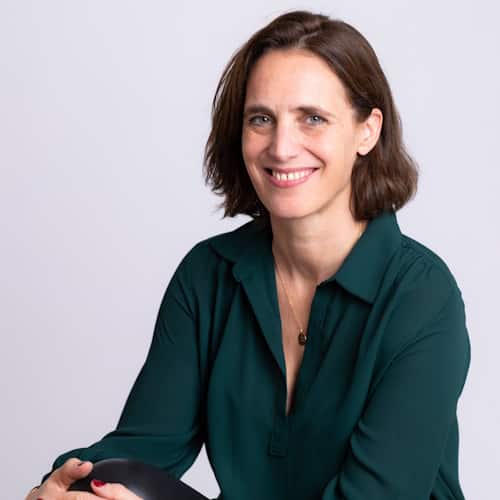 | Gaëtane is Senior expert at the European Commission on citizen participation/deliberation. Previously member of the Secretariat for the Conference on the Future of Europe. Also worked in France on the Citizens' Consultations on Europe and the Grand Débat. Member of the board of FIDE. | Project page |
| Simon Threlkeld | Advocate | Canada | 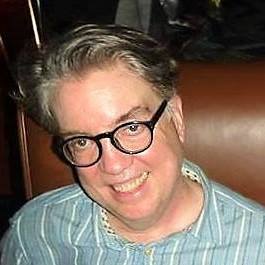 | Simon writes in favour of laws being decided by legislative juries/minipublics, and in favour of a wide range of public officials being chosen by juries/minipublics, starting in published form in the late 1990s. | Personal Page |
| Tin Gazivoda | Program Officer | Croatia | 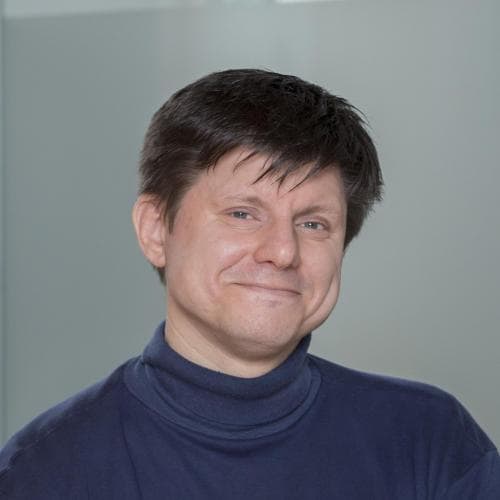 | From the last 90's until 2010 Tin was engaged on human rights work, civil society initiatives (including as an activist) and developing democratic standards. In the last few years Tin has worked to support several citizens assemblies (Gdansk, Eupen, Belfast and now Budapest). | |
| Marjan Ehsassi | Practitioner | North America | 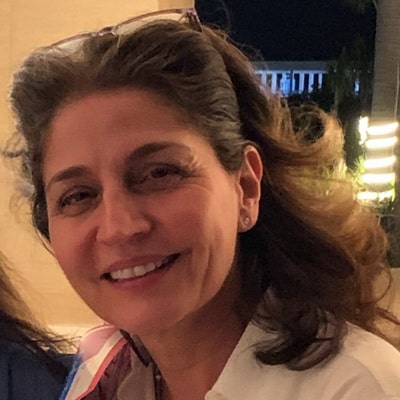 | Marjan is a believer in the potential of citizen engagement and impactful democratic innovations. A former litigator and international governance expert, she is pursuing a Doctorate in International Affairs at Johns Hopkins with a concentration on Deliberative Mini-Publics. | |
| Dimitri Courant | Researcher | France & Switzerland | 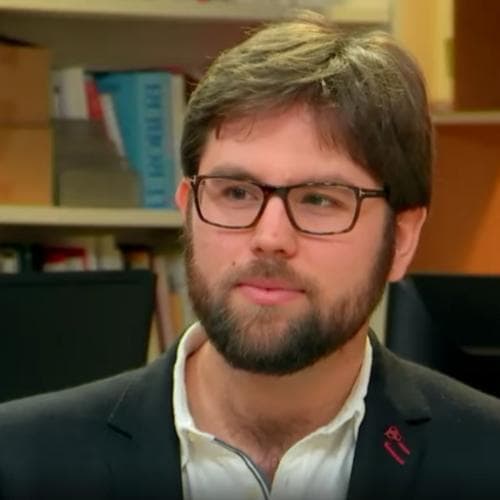 | Dimitri is a researcher in political science at the Universities of Lausanne & Paris 8. His fieldwork compares case-studies: Citizens’ Assemblies (Ireland), High Council of the Military, Citizens’ group at CESE, Grand Débat, Citizens’ Convention for Climate (France), & Demoscan (Switzerland) | Professonal Page |
| Marcin Gerwin | Practitioner | Poland | 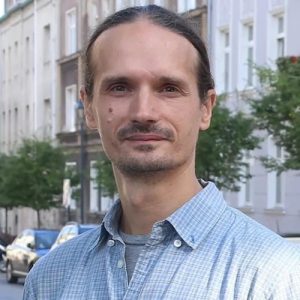 | Marcin Gerwin, PhD – designs and coordinates citizens’ assemblies. He is a specialist in sustainable development and deliberative democracy. A graduate of political science. Author of the guide to citizens’ assemblies. | climateassemblies.org |
| Jane "Jenny" Mansbridge | Researcher | United States | 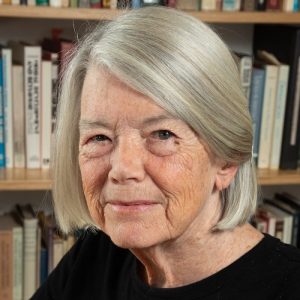 | Jane Mansbridge has been active in social movements since the mid-sixties. As a scholar at the Harvard Kennedy School, she specializes in democratic theory, particularly participatory democracy, deliberation, and representation. She is the author of Beyond Adversary Democracy and other works. | Faculty Page |
| Wendy Willis | Practitioner, Writer, Network Director | United States | 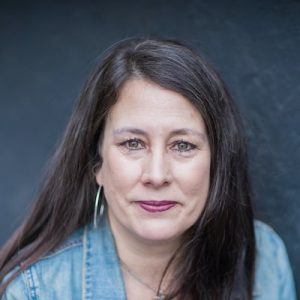 | Wendy Willis is the founder and director of Oregon’s Kitchen Table at Portland State University and the Executive Director of the Deliberative Democracy Consortium. Wendy is also a poet and essayist. Her most recent book of essays is These are Strange Times, My Dear. | |
| Arantxa Mendiharat | Practitioner | Spain | 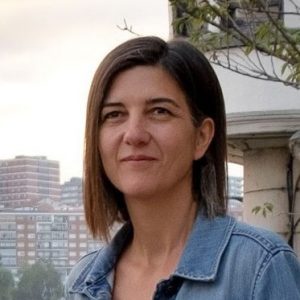 | Arantxa has co-founded and lead several collectives that promote sortition and deliberation since 2012. From 2017 to 2019, she has been involved in the design and implementation of Madrid's Observatory of the City. She has also developed the website Democracia Por Sorteo. | deliberativa.org democraciaporsorteo.org |
| Laura W. Black | Researcher | United States | 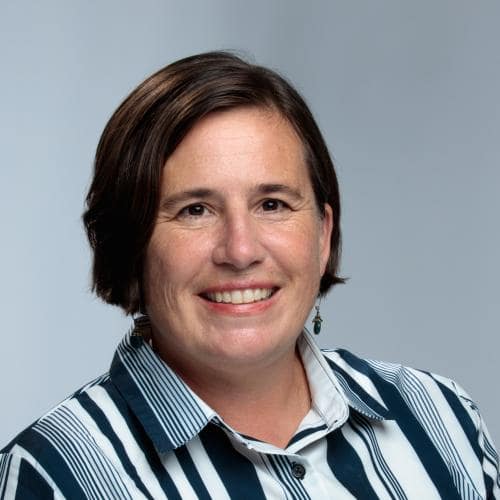 | Laura Black is a professor of communication studies and the past editor of the Journal of Public Deliberation. She also helped found the Public Dialogue and Deliberation Division at the National Communication Association. | ResearchGate Profile |
| Amarnath Karan | Programme Officer in an NGO | India | 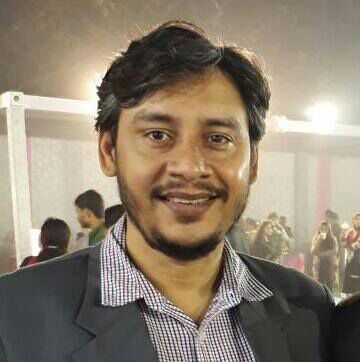 | Amar works on themes of sustainability in urban sector like mobility, air quality, climate change and road safety apart from education for SD. He has worked on participatory budgeting & facilitating deliberative democracy process and interested to apply same in above sector. | |
| Nivek Thompson | Researcher | Australia | 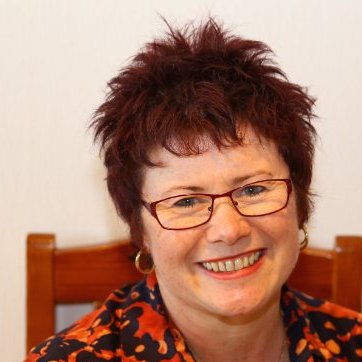 | Nivek is undertaking her PhD looking at the contribution that deliberative mini-publics make to improving democracy. Nivek also runs a consultancy, Deliberately Engaging, which recruits mini-publics and facilitates online engagement. | Deliberately Engaging @DelibEngage @NivekKThompson |
| Simon Pek | Researcher | Canada | 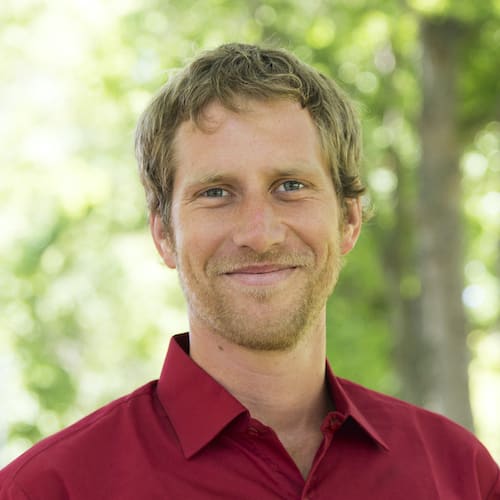 | Simon currently works as a faculty member at the University of Victoria and as a Board Member at Democracy In Practice. He is particularly interested in identifying and experimenting with deliberation and random selection in the contexts of education, coops, and workplaces. | Faculty Page |
| Stephen Elstub | Researcher | United Kingdom | Stephen is a researcher at Newcastle University and has two Parliamentary Fellowships at the UK and Scottish parliaments on linking mini-publics with parliamentary committees. He is part of the official research teams for the Citizens’ Assembly of Scotland and the Climate Assembly UK. | Faculty Page | |
| Prof. Dr. Patrizia Nanz | Researcher | Germany | 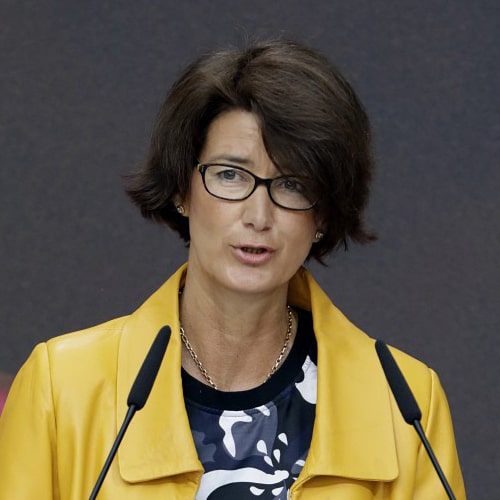 | Patrizia Nanz is Vice President of the Federal Office for the Safety of Nuclear Waste Management, director of the German-French Forum for the Future and Professor at the University of Potsdam. From 2016 to 2020 she was scientific director at the IASS in Potsdam. | |
| Mark Warren | Researcher | Canada | 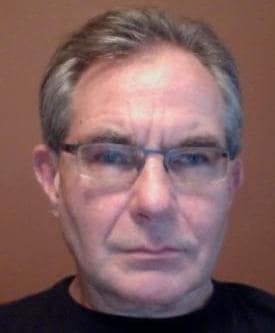 | A democratic theorist interested in democratic innovations, Warren is currently working with an international team on The Participedia Project, which uses a web-based platform to collect data about democratic innovation and participatory governance around the world. | Participedia Google Scholar |
| DemocracyCo | Practitioner | Australia | 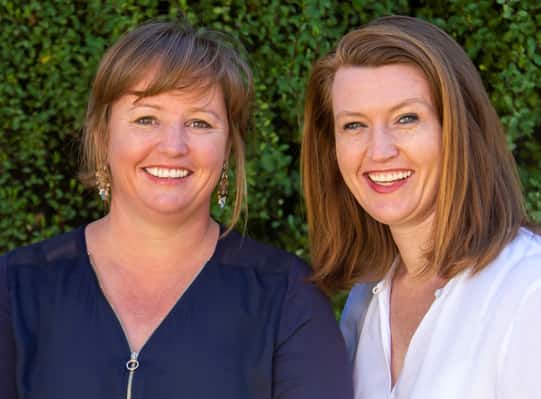 | DemocracyCo is a world-renowned team with a proven track record in using deliberative methodologies to guide governments and stakeholders in engaging and mobilising communities. Our work tackles the most complex problems of our time in Australia and Internationally. | Linkedin HomePage |
| Yago Bermejo Abati | Practitioner | Spain | 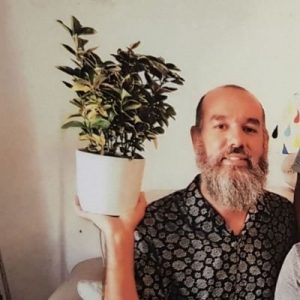 | Yago Bermejo Abati works as an independent consultant in the field of democratic innovation involving new architectures with digital participation and deliberative democracy. He is co-founder of deliberativa.org. From 2016 to 19 he has been working in Madrid City Council. | deliberativa.org |
| Tiago C. Peixoto | Public Servant | Brazil | 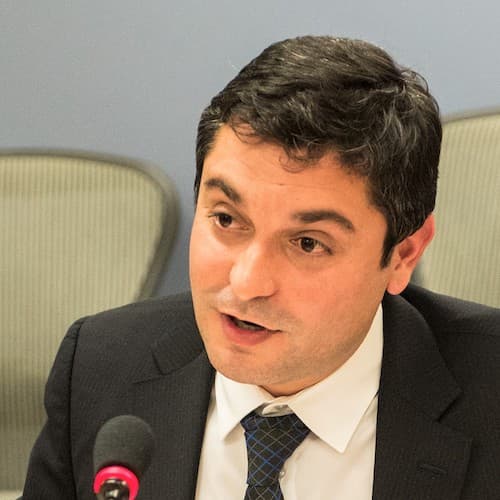 | Tiago is a Senior Public Sector Specialist at the World Bank's Governance Global Practice, leading regional and global work at the intersection of technology and citizen engagement. | Professional Page Google Scholar DemocracySpot |
| Stefano Sotgiu | President | Italia | 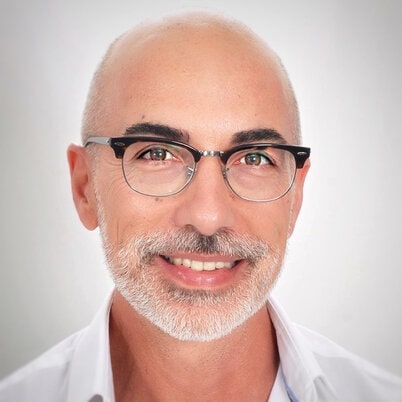 | Prossima Democrazia deals with promoting through design, implementation, dissemination, training and research activities, the culture of democratic innovation and deliberative participation based on representative samples of citizens drawn by lot in Italy, EU and globally. | Project Page |
| Tom Atlee | Writer, Researcher, Adovocate | United States | 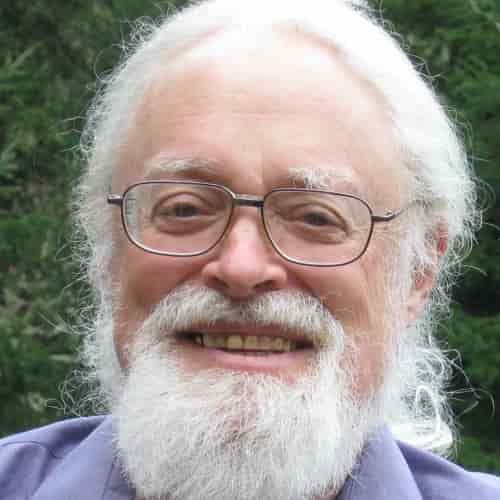 | Tom researches and promotes the potential wisdom of whole collectives, communities, societies. Founder of the Co-Intelligence Institute, creator of the Wise Democracy Pattern Language, author of 4 books incl The Tao of Democracy and Empowering Public Wisdom. NCDD member. | Blog Professional Page Institute Page |
| Patrick Chalmers | Journalist, film maker and activist | France | 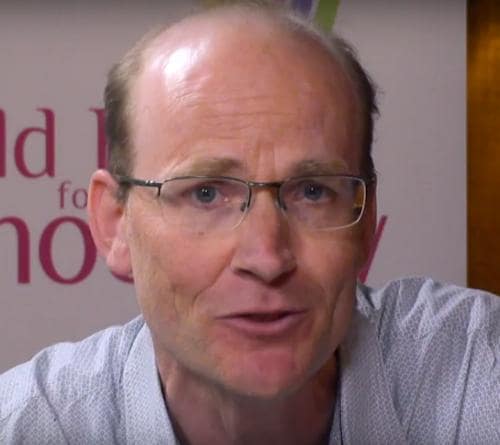 | Patrick is a lifelong journalist who discovered, over the years, that the quality of political structures themselves was a more important issue to tackle than any other single topic that he might work on. That realization made him a reporter and advocate. | All Hands On Personal Page |
| Andrea Bernarte | Practitioner | Philippines |  | Andrea has been supporting the Bangsamoro peace process in the Philippines since 2016. In 2021, she helped pilot an online citizens' deliberative forum for constituents suffering from the economic effects of the lockdown. | Linkedin |
| Savaş Zafer Şahin | Organizer | Türkiye | 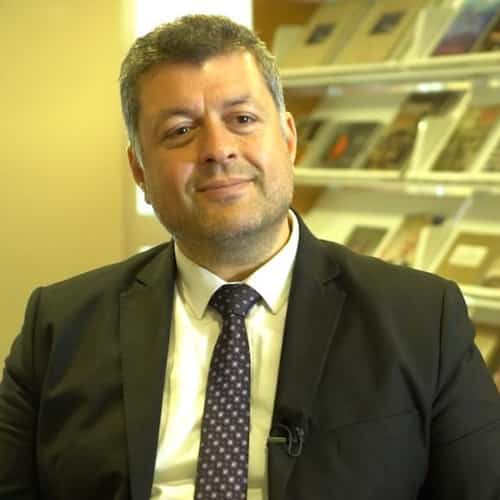 | As a University Professor in urban planning, he is heavily involved with participatory Practices and urban development in Türkiye. He is now Deputy Head of the Citizen Assembly of Ankara. He is the awardee of the IAF 2020 "Facilitation impact award" Gold Medal. | Research website |
| Terrill Bouricius | Political Theorist, Politician (Retired) | United States | 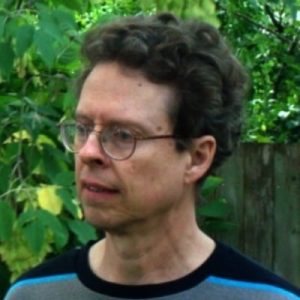 | Terrill Bouricius is a political theorist and recovering politician. From 1981- 2001 he served as a City Councilor and then as a member of the Vermont House of Representatives. After working on election reform on a national level, his focus shifted to sortition around 2004. He works with FairVote, The Center for Voting and Democracy, and the Sortition Foundation US. | |
| Graham Smith | Researcher | United Kingdom | 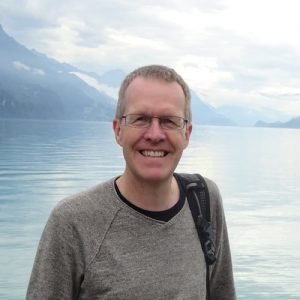 | Graham is the Director of the Centre for the Study of Democracy at the University of Westminster, and Chair of the Foundation for Democracy and Sustainable Development. He is a specialist in democratic theory and politics, with particular expertise in participatory democratic institutions. He is a recognized authority on citizens’ assemblies and other deliberative processes and was one of the organizers of the Citizens’ Assembly on Brexit. | Faculty Page Centre for the Study of Democracy Foundation for Democracy and Sustainable Development |
| Angela Jain | Research based Practitioner | Germany | 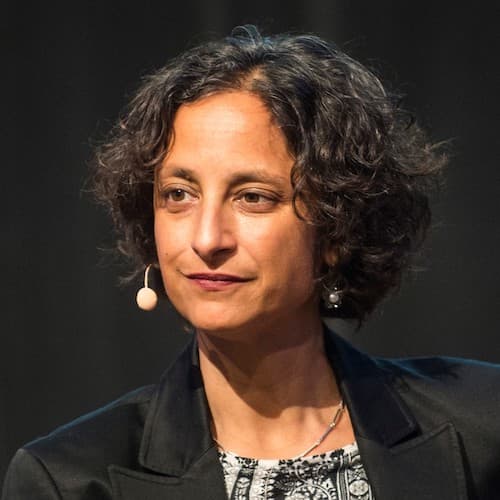 | Angela advises decision-makers on process design for citizen deliberation. From a practitioner's perspective, she knows well how to organize/ facilitate dialogue & achieve impact. Interests: Smart Cities, Climate Change, Democratic Innovation, Planning Cells, Citizens Assemblies. | |
| Rose Longhurst | Program Officer in a Foundation | Germany |  | Rose works on issues of participatory decision-making, from grassroots groups to multilateral institutions. Her focus is mostly on meaningful participation - including deliberation and sortition methods - in philanthropic grantmaking. She works at OSIFE in Berlin. | |
| Scott Lappan-Newton | Practitioner | Australia | 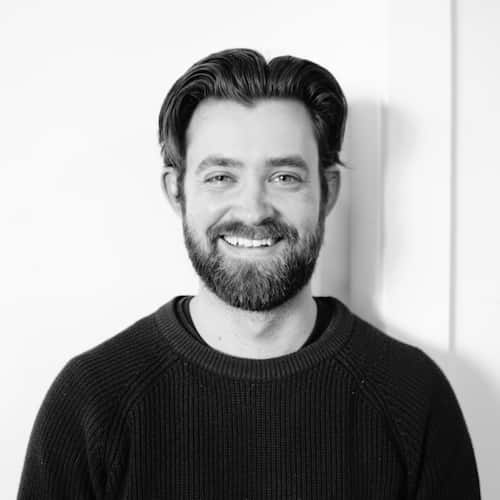 | Scott collaborates with newDemocracy and others to incorporate design thinking and program logic into the facilitation of Assemblies on resilience, energy, land-use, education and more, and helps run multi-stakeholder co-design processes that interface with these deliberations. | Project page |
| Carolyn M. Hendriks | Researcher | Australia | 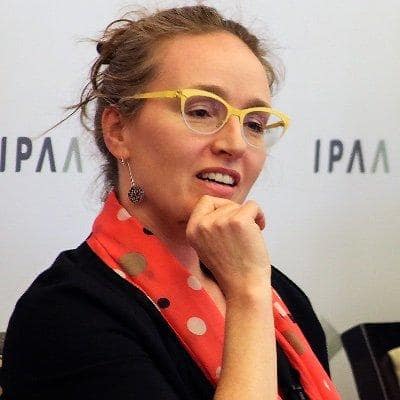 | Carolyn is a researcher and educator at the Australian National University. She has published widely on public deliberation in contemporary governance. Her latest book (with Ercan & Boswell, OUP), Mending Democracy looks at how to strengthen connections in our democratic fabric. | Faculty Page Google Scholar |
| Kelly McBride | Practitioner | Scotland / UK |  | Kelly is a practitioner with over a decade of experience in design and facilitation of deliberative and participatory democracy, including citizens’ assemblies and participatory budgeting. She was previously Director of Policy & Practice at Democratic Society. |
